Category: Alternative Investment Strategy
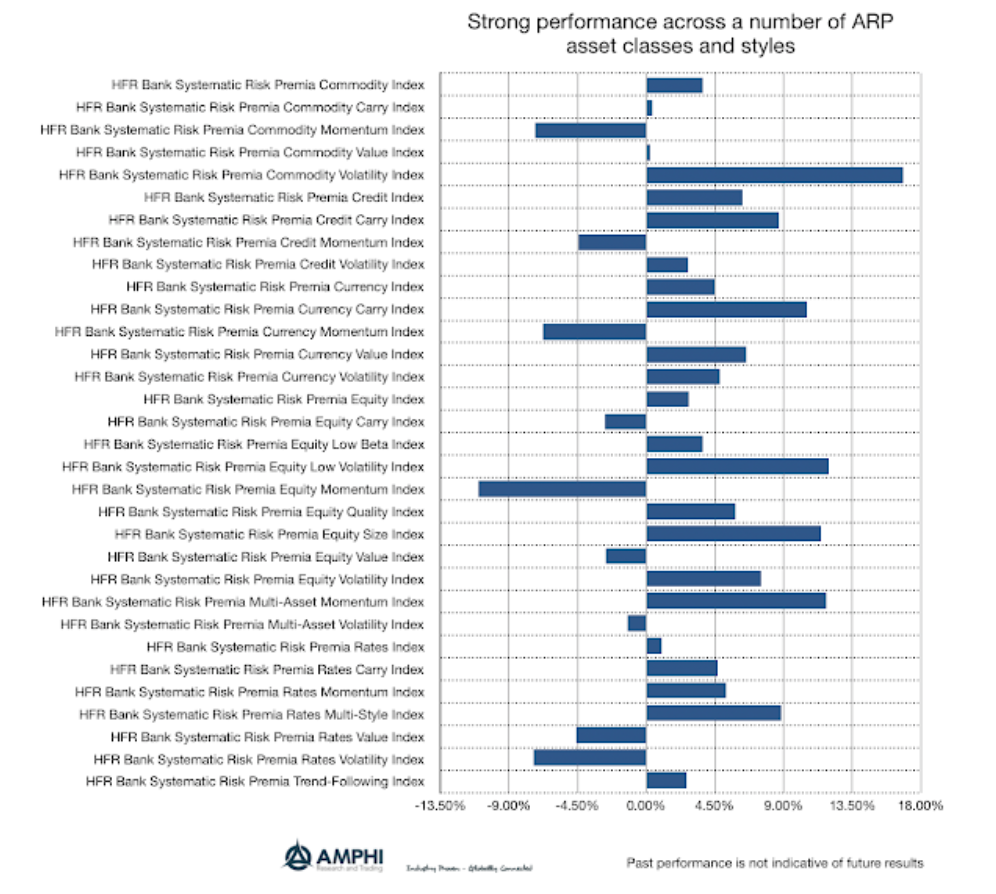
Strong first quarter returns for selected alternative risk premia
Selected alternative risk premia showed strong performance during the first quarter. There is significant tracking error with the HFR risk premium indices versus individual bank risk premia swaps, but they can provide some suggestive rankings. This strong performance should not be surprising given the large reversal of with equity beta and the strong moves in global bond markets. A couple of major themes emerged for the first quarter centered around positive equity beta risk and falling volatility.
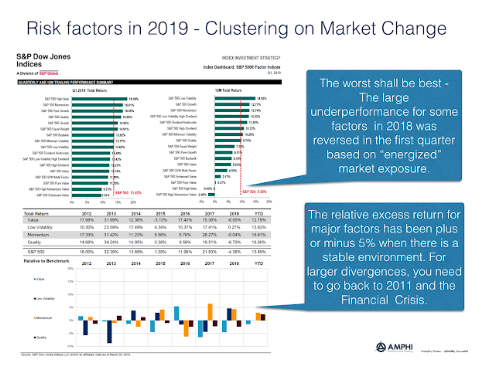
Equity Factor performance in 2019 – Clustering of Returns
An analysis of the first quarter tells us a lot abut factor investing in the short-run. Foremost, the worst factors last year are the best for this year. Factor risks change with the market environment as shown through the global factor indices from S&P Dow Jones. Factor rotation occurs, but not clear that it is predictable. Factors effects also can be swamped by the impact of large macro events.
Bill Gross’ Alpha: How He Generated High Returns in Fixed Income Through Sector Risk Premium Allocation
Bill Gross has retired and there already has been research to see if he was the Warren Buffet of bonds. His fixed income track record over the long-run cannot be easily be matched, but a careful study of his portfolio suggests that his gains were generated differently than the classic stock-picker. He may have generated alpha but he did it the old fashioned way in fixed income, he took on more sector risk. See “Bill Gross’ Alpha: The King Versus the Oracle” by Richard Dewey and Aaron Brown.
Unveiling the BAIT Strategy: The Art of Trading with Advantage
You are so intelligent. You have a great trade idea and know it will be a winner, but there is only one small problem. For any trade you make, there must be someone else on the other side. For every buyer, there has to be a seller. So, for what you are doing right, someone […]
Risk premia versus hedge funds – Worth a look
As we better understand the return generation process, we are able to dissect any set of money manager or hedge fund returns into its component parts. At a high level, any money manager can be divided into a set of risk factors or premia and alpha or skill. As a general conclusion, researchers have found that as investors get better at identifying risk factors, the size of alpha declines. We are able to attribute more returns to specific risks so the amount that is leftover as skill declines.
Why Probability Matters More than Direction: Insights for Traders and Investors
One of the critical problems with decision-making is that it is often simplified into either/or choices. “Yes/no,” and “Go/No-Go” is how we often focus our attention and make decisions. Life is easy when problems are framed as either black or white. For example, the Fed will either tighten or not tighten. Employment will either increase […]
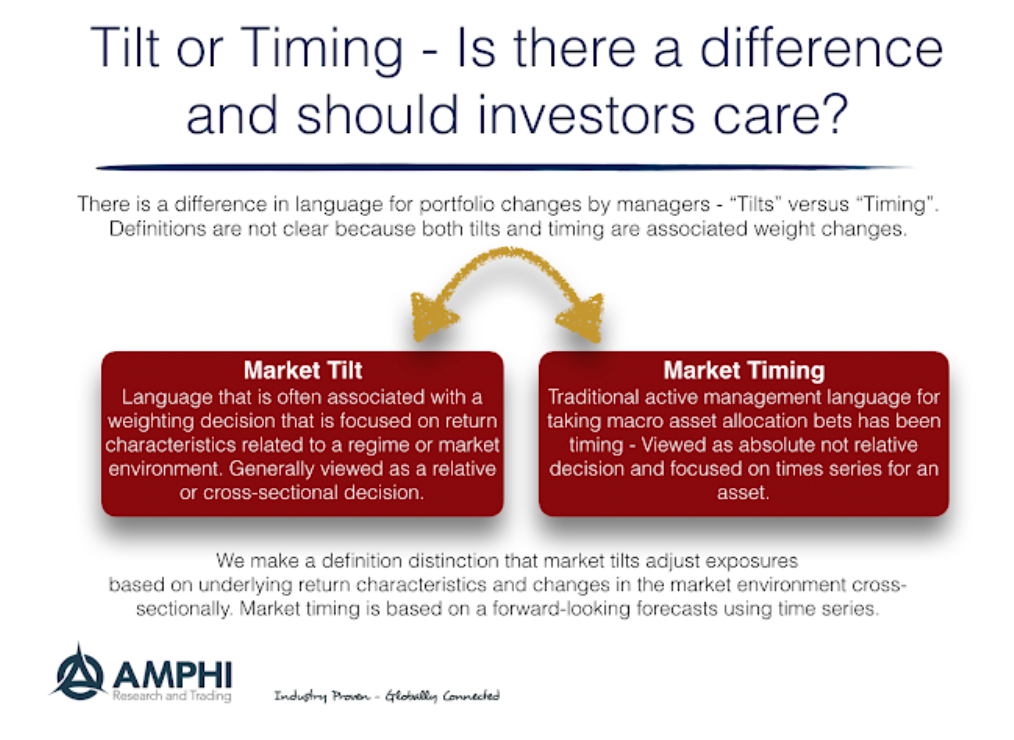
Market Tilt or Timing – Is there a difference in forecasting?
At a recent conference, I heard a large money manager say the following, “We do not market time, but we do take market tilts.” Unfortunately, no one was able to ask the manager to clarify the difference between tilts and timing. Aren’t they both forecasts?
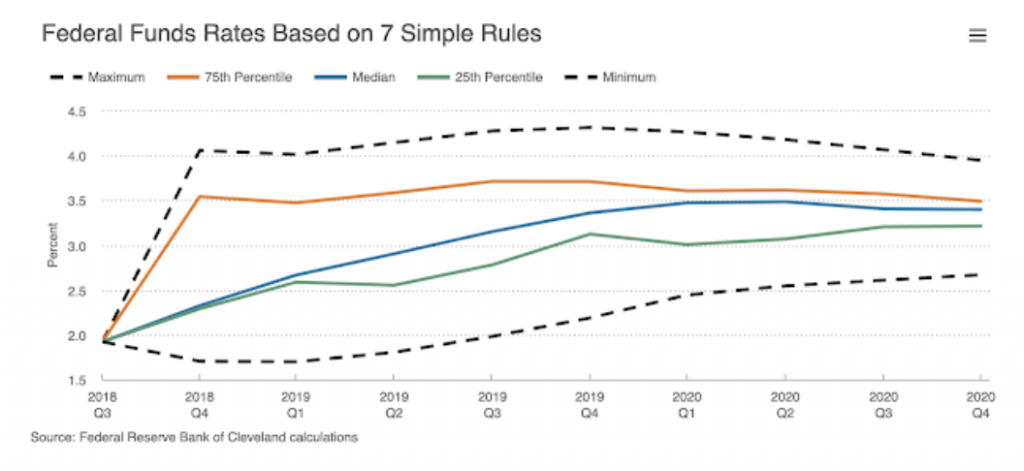
Bracketing Fed Funds rates through a known set of model – Getting good probabilistic estimates
An ensemble approach to modeling can be an effective way to get a good idea of the consensus and differences in forecasts on futures moves in the Fed funds. This is an effective alternative to looking at Fed funds futures and options as a market estimate.
Trend-following is not the same as following the herd of opinions
Investors may be viewed as trend-follower because they chase performance, only picks recent winners, and sort on performance. However, trend-following professionals often exploit this undisciplined, casual, and unsystematic approach to trends through the investment scaling of chasers. Investor behavior driven by tracking the opinion of peers is a form of trend following and may create price trends; however, it is not the same as a disciplined approach to finding trade opportunities through rules-based behavior.
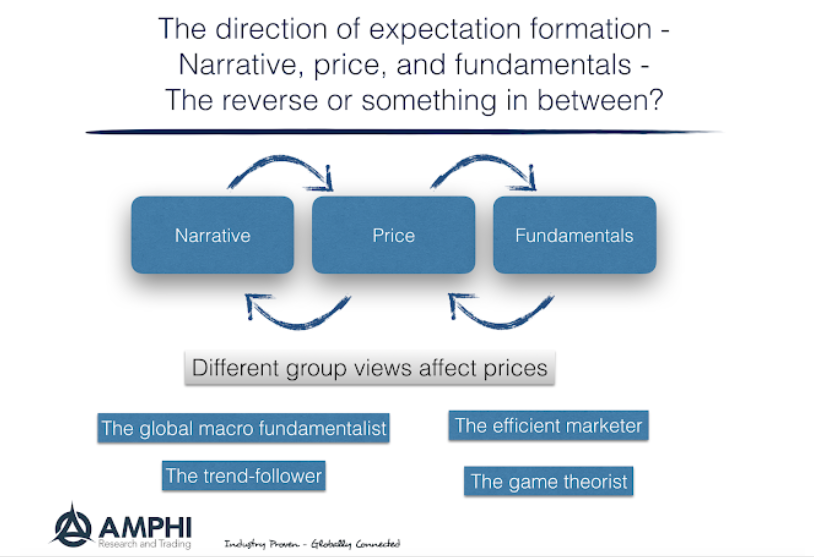
Mastering Market Philosophy: How Your Investment Strategy Shapes Your Profits
Any investor needs to know two things: what is the philosophy that drives his decisions; what is the philosophy that is driving the market as a whole. Are you price, fundamental, efficiency or narrative driven? Is the market currently price, fundamental, or narrative driven? Know your expectation mechanics.
That’s crisis not correction alpha, you fool! Trend-following value is in simplicity
I discovered from reading an informative piece on managed futures and CTA’s from HedgeNordic magazine that trend-followers will produce “crisis alpha” but not “correction alpha”. A crisis is defined as a significant and extended downturn while a correction is short-term drawdown. Unfortunately, one man’s correction is another man’s crisis. All crises start and end as corrections.
FX intervention – Analysis says central bank activity works
Many have held the view that central bank FX intervention is ineffective. It can be disruptive and have some temporary impact, but central banks cannot make currency markets do what they don’t want to do. Research using public data, a limited sample and mainly focused on floating exchange rate regimes, shows, at best, mixed value […]
Alternative risk premia overreaction in 2018 – Don’t fall for recency bias
What happened to alternative risk premia returns in 2018? This was a major discussion topic at a UBS risk premia conference last week. It was a difficult year. In fact, it was the worst performance year since 2008, and the decline for many strategies was a multiple standard deviation event. Yet, there is a good opportunity for investors who focus on the longer-run. Since the performance for many risk premia seemed unrelated to macro factors, there is strong potential for mean reversion to longer-term strong positive performance. To extrapolate recent performance as representative of history would be to fall into a recency bias.